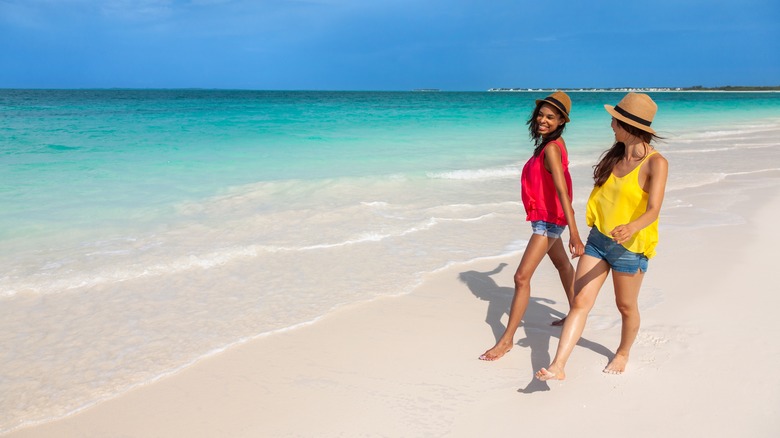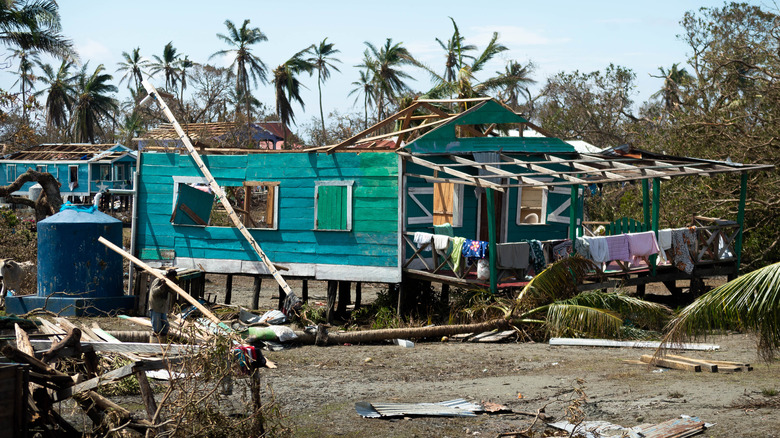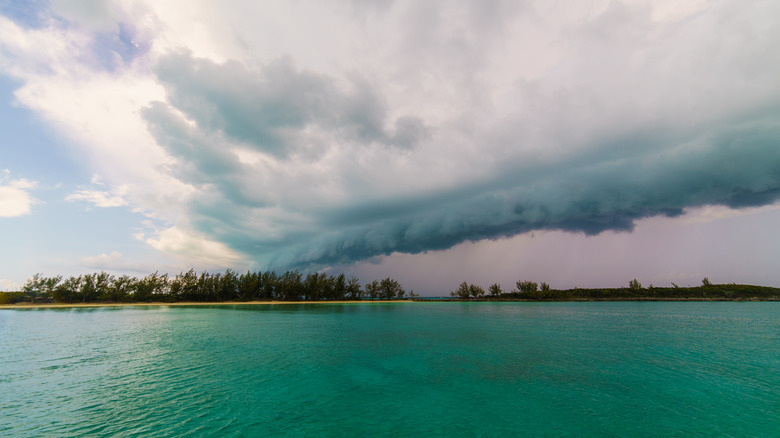The Bahamas is often regarded as a Caribbean paradise, though it does come with a few risks: The island country is home to the region’s most shark-infested beach, and in 2024, spring breakers reconsidered trips to the Bahamas after the U.S. Department of State issued a level-two travel advisory due to increased crime.
Unfortunately, sharks and criminals aren’t the only threats lurking in the tropical destination. Hurricanes are also a common danger for both locals and tourists in the Bahamas, particularly during hurricane season from June 1 to November 30. The country’s islands are situated in the Atlantic hurricane belt, making them especially vulnerable to intense storms. Moreover, the Bahamas is at risk of flooding and landslides, meaning destruction can often continue even after a ferocious hurricane has passed.
Multiple hurricanes strike the Bahamas each year, but one of the most devastating was Hurricane Dorian in 2019. During the storm, 78 people died, nearly 300 went missing, and thousands were left without homes. Traveling to the Bahamas during hurricane season may, at best, result in a delayed flight or canceled trip. At worst, you could be trapped in a life-threatening tropical cyclone with no way to escape.
Winter and spring are the best seasons to visit the Bahamas

Unlike many other beach destinations, the Bahamas come alive most in the winter and spring, when the threat of dangerous storms softens. However, it’s important to note that hurricanes can strike the islands outside of the official hurricane season, and May — not June — marks the beginning of the rainy season. With this in mind, December through the first half of April will likely offer the best weather for your vacation.
Of course, you won’t experience the Bahamas’ balmy summer temperatures when visiting in the winter or spring, but that doesn’t mean you have to scrap your beach plans. Even in January and February, typically the country’s coolest months, the average temperature is around 76 degrees Fahrenheit, making for warm days and mildly cool evenings.
Given the comfortable weather and relatively dry conditions, you might run into more crowds in the Bahamas in the winter and spring compared to the hurricane-heavy months. If peace and quiet are what you’re after, be sure to avoid visiting during the winter holidays and spring break, when tourist numbers are especially known to swell.
What to know if you do visit during hurricane season

During hurricane season in the Bahamas, the tourist crowds significantly decrease and hotel prices tend to drop — and for some travelers, that could be enough reason to book a trip. Still, there are some crucial tips to keep in mind before heading to the Caribbean hotspot during the stormy season.
First, consider buying travel insurance that covers weather-related costs and travel interruptions. That way, you have some peace of mind in case you have to change your plans. Then, contact your accommodation and ask how they assist guests during treacherous storms. Note that buildings along the beach may be particularly vulnerable, and an evacuation could be required.
Finally, keep a flexible mindset throughout your trip. Track the weather daily and prepare to leave the country early if a hurricane approaches. Even if a major storm doesn’t barrel through, milder rain and wind may interrupt your beach days, so pack a raincoat and always have an alternative activity in mind (such as indoor shopping or visiting a museum).

